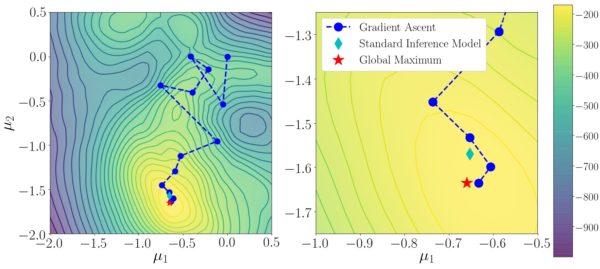Abstract

Inference models are a key component in scaling variational inference to deep latent variable models, most notably as encoder networks in variational auto-encoders (VAEs). By replacing conventional optimization-based inference with a learned model, inference is amortized over data examples and therefore more computationally efficient. However, standard inference models are restricted to direct mappings from data to approximate posterior estimates. The failure of these models to reach fully optimized approximate posterior estimates results in an amortization gap. We aim toward closing this gap by proposing iterative inference models, which learn to perform inference optimization through repeatedly encoding gradients. Our approach generalizes standard inference models in VAEs and provides insight into several empirical findings, including top-down inference techniques. We demonstrate the inference optimization capabilities of iterative inference models and show that they outperform standard inference models on several benchmark data sets of images and text.
Copyright Notice
The documents contained in these directories are included by the contributing authors as a means to ensure timely dissemination of scholarly and technical work on a non-commercial basis. Copyright and all rights therein are maintained by the authors or by other copyright holders, notwithstanding that they have offered their works here electronically. It is understood that all persons copying this information will adhere to the terms and constraints invoked by each author’s copyright. These works may not be reposted without the explicit permission of the copyright holder.